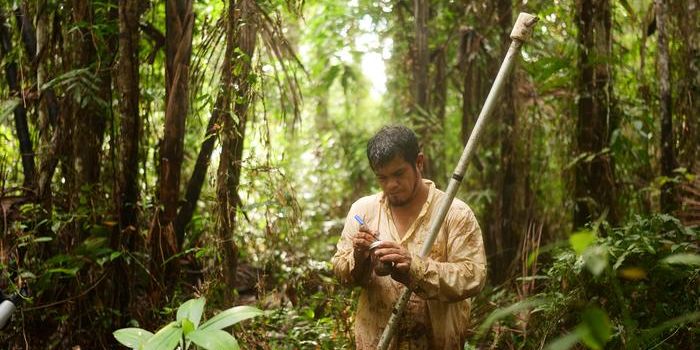Aside from giving us the phrase "to play possum," it could be argued opossums haven't really contributed all that much to human society. That might be set to change thanks to new research. It shows that the marsupials might be the key to developing an anti-venom that could not only save people from snake bites but from attacks by scorpions and from plant and bacterial toxins as well.
According to a press release about the research, opossums are apparently immune to the venom from snake bites. This got researchers curious about why that was so and whether they could harness the opossum's antivenom properties for use on humans. The first bit of research on the topic was done in the 1940s and was followed up again the early 1990s, but current researcher Claire F. Komives from San Jose State University says no one followed up on the studies to create a working anti-venom therapy since then.

She and her team picked up on the research from the '90s that showed that a peptide -- a small chain of amino acids -- could neutralize snake venom. The researchers had the peptide synthesized in the lab and then injected it into mice who had been given the venom from a US Western Diamondback rattlesnake and a Russell's Viper from Pakistan. The treatment worked and the mice were protected from any ill effects.
Interestingly enough, the scientists don't know exactly how the peptides work their anti-venom magic. One theory is that they bind to a protein in the snake venom that is toxic to humans and render it ineffective.
Speaking of things that are toxic to humans, Komives and her team have found a novel way to produce the anti-venom. They enlisted the help of bacteria E. coli, which they reprogrammed to produce the peptide. This unique production method would allow large quantities of the anti-venom to be made easily and inexpensively, which could help people in poorer areas of the globe who typically have less access to anti-venoms despite a preponderance of poisonous snakes.
According to the International Society on Toxicology, it's estimated that at least 421,000 people are bitten by venomous snakes every year, with 20,000 deaths resulting. The highest burden exists in South Asia, Southeast Asia and sub-Saharan Africa. But before the anti-venom makes it way there, the team plans to test it on mice.
The research will be presented on March 23 at the 249th National Meeting and Exposition of the American Chemical Society, the theme of which is "The Chemistry of Natural Resources."
(Source: Cnet.com)









